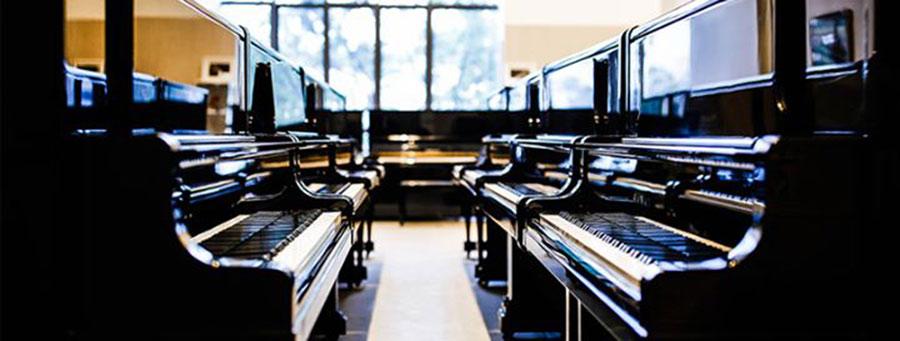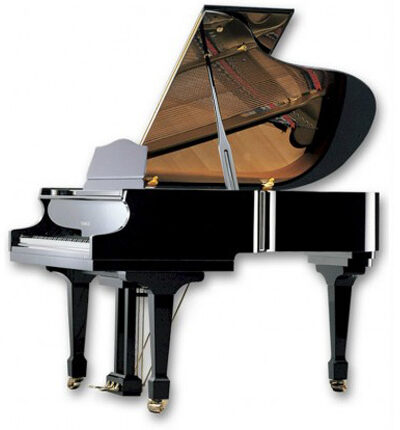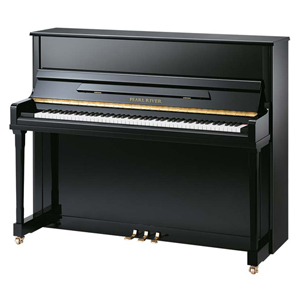
The thought of buying a piano can be exciting but it can also be a bit intimidating or daunting, especially if you don’t know anything about them. But have no fear, because at Piano Price Point, we’ve compiled so much of the data and written articles to make your job easier.
To narrow down the scope of buying a piano, you first need to decide what kind of piano you’re looking for. Ask yourself these three questions:
- Are you looking for a grand or an upright piano?
- Are you looking for new or used?
- What’s your budget?

Grand Piano

Upright Piano
A grand piano is one where the strings are horizontal. It’s the type of piano that you might find on a concert stage but there are also many smaller grand pianos that easily fit into a home An upright piano is one that has vertical strings and usually sits up against a wall. They both have the same number of keys and their function is the same but the way they work is actually quite different. Grand pianos have many advantages over upright pianos and are usually priced accordingly. If you would like some information about the differences, check out our article entitled “Why Upgrade to a Grand Piano?”
When it comes to question of new or used, there are many, many different names of pianos. Historically there have been about 11,000 names used! To find out what the major brands, you can simply click below to see them. This list represents the vast majority of the world’s manufacturers today. By clicking on any of the manufacturers, you’ll be able to see what pianos they make and at what price. If you’re buying used, it’s still a wise idea to even shop for these same brands because they are the ones who have strength today in the industry. If you need some advice on buying a used piano, check out our article called “
How Old is Too Old?”. After all, like every object we buy on the secondary market, we always need to consider the lifespan and condition of the piano.
Some of you have already started lessons and are in the process of upgrading. In that case, here’s 2 articles on “
Why Upgrade from a Digital?” and “
Why Upgrade to a Professional Piano?”
Yamaha CFX Concert Grand Latest Release
 But how do you actually know what to look for when you’re trying out pianos? That’s where this next article comes in handy. It’s called “Testing Pianos Like a Pro”. In this article, I go step by step into different areas of the piano that I pay attention to.
But how do you actually know what to look for when you’re trying out pianos? That’s where this next article comes in handy. It’s called “Testing Pianos Like a Pro”. In this article, I go step by step into different areas of the piano that I pay attention to.
In a nutshell, these are 5 major concepts to consider when buying a piano:
- Sustain
- Evenness
- Control
- Tonal Quality
- Touch Weight
Test-driving is one of my favorite things to do and this article breaks down different piano tests. Whether you’re a seasoned pro or absolute beginner, don’t be afraid to sit down at a piano for sale and play some notes… any notes. After all, this is the instrument you might be spending hundreds of hours playing and thousands of dollars buying.
Finally, I’ll leave you with 3 different articles. The first is called “Optimizing Piano Acoustics At Home” which speaks to placement in your home. The second is called “The Ins and Outs of Piano Moving”. Finally, you should read “How Often Should I Tune My Piano?”.
Good luck on the piano hunt!
Yamaha CFX Concert Grand Latest Release